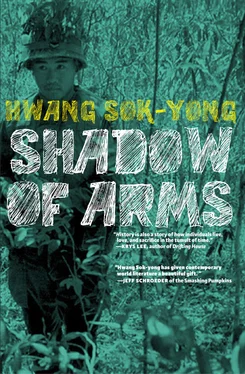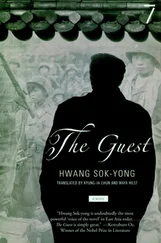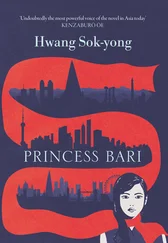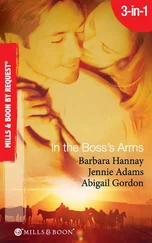Then the area would be demolished by saturation bombing and an infantry assault would follow. But most residents knew only too well that if they accepted the offer of resettlement they would receive barely enough rice to survive and become mere tenants working the lands grabbed by government officials or military officers. Some of them couldn’t leave their home villages because they had family members fighting with the local guerrillas. Either they ran away to safer regions, or remained in their villages, vulnerable to brutal murder. The Americans spoke of their zones of occupation as having a leopard-spot pattern: outside of the secure spots, nearly everything was a free-fire zone.
“Well, if we can get a documented order from Corps, I’ll put in a request for air support right now to the US commander at Division Headquarters,” said General Van Toan.
Pham Quyen agreed. “I’ll have the document dispatched tomorrow, sir. Better postpone the bombing until then. We can take proper steps and broadcast the warning today.”
“That’s how we’ll conduct it then. Bien Daio is the furthest point into the jungle. From there we’ll have to cut a road with a bulldozer as we advance. When we reach the ravines we’ll turn around on the southern slope of Hill 3383. We can cut the cinnamon from both hills and collect it at the ravines for transport to Bien Daio.”
Pham Quyen looked around quickly. He seemed flustered. Aside from the major acting as magistrate and the lieutenant colonel, there were two other men in the room, the battalion commander and the sergeant-bodyguard. Major Pham spoke obliquely so that the general could pick up his hint.
“A venture designed to strengthen the fiscal position of Quang Nam Province by utilizing resources in the operations area is a part of the refugee resettlement enterprise. And it is an order from His Excellency the Governor himself that the manual work involved be given to the local residents so that they can reap some benefits.”
“I understand. Shall we go?” General Van Toan straightened his metal helmet and rose. “Keep up the good work, officers.”
Van Toan, Pham Quyen, and the magistrate left the office and went downstairs.
“Isn’t there a place with a better view?” the general asked.
The magistrate led them to a bunker overlooking the river. A pair of sentinels, who had been idly lounging inside, jumped up.
“Stand guard outside,” the magistrate barked at the two soldiers. He then pointed to the dense jungle down the bank of the river. “That’s the spot, sir.”
“And the Lien Hiep bridge?”
“Over there to the right, we can climb up to the west alongside the river.”
Tanks and bulldozers could be seen crawling along the edges of rice paddies down the river. The bombing continued in the background. White smoke was drifting over the distant jungle. Inside the bunker, a wooden field cot and ammo crates had been arranged to provide seating. Pham Quyen pointed to the wooden cot and offered the seat to the general. “Sir, have a seat, please. And you, too, Major.”
When they were sitting, Pham Quyen spoke. “What the hell were you were thinking? Our operation plan is publicly described as a pacification operation for the resettlement projects in An Diem and An Hoa. If at the start you reveal the intention to harvest cinnamon, there’ll be talk.”
“Do you think so? Utilizing forest resources will also serve war aims, won’t it?” the general asked tentatively.
“In all events, the first and foremost objective is to seize and completely secure that entire section of the jungle. Once that is achieved, the cinnamon collection will be seen as a financial fringe benefit incidental to the operation. The benefit, of course, is to go to the welfare projects for the local residents.”
Pham Quyen paused and then went on. “One more thing I’d like to say. His Excellency the Governor is the administrator for this province and also holds the military command charged with looking after the life and livelihood of all Vietnamese in this region. He’s my superior and the immediate superior of the division commander. It would be unwise to make insulting insinuations or jeering remarks about His Excellency in the presence of subordinates.”
At such an uncompromising rebuke from Pham Quyen, the division commander faltered as he tried to justify himself. “I was only. . how should I put it? I was only joking because General Liam and I are close friends from way back.”
Once he had put the general on the defensive, Pham Quyen reprimanded him even more severely. “Even though this area is the responsibility of the Second Division, the present operation could have been conducted by mobilizing the defense division in Da Nang or the Rangers in Hue. I personally requested the corps commander to involve your unit.”
“I know.”
“Apart from the military action necessary for defending positions and securing the jungles of Tung Duk and Bien Daio, the military will not be allowed to participate in the task.”
“Oh?”
“It’s the civilians who will be collecting the cinnamon. The Ha Thanh villagers will handle the Tung Duk region and those from An Hoa will take care of Bien Daio.”
“You mean, the region will be divided?”
“Yes, but only operationally. In Ha Thanh, the magistrate and I will be in charge of the operation. You, General, should delegate the same responsibility to your military magistrate in An Hoa, sir. All the harvested cinnamon will then be collected in Ha Thanh and An Hoa, and from there will be transported to Da Nang.”
“So where do we stand?”
“Don’t be concerned, sir. The quantity is enormous, and back in Da Nang there are more than a few traders from India and Singapore.”
Instead of collecting and selling the goods through an operation centralized in the provincial office, Pham Quyen effectively had accomplished a division of the operations. As long as Nguyen Cuong was on his side, his ability to deal in cinnamon was huge. Cuong came from a merchant family that for generations had been collecting and trading cinnamon and he himself was raised as a specialist in the harvest and marketing operations. If he and Cuong could manage to keep a whole section of the jungle to themselves, their share would be far greater. Also, Van Toan had little choice but to allow a distinct share for General Liam, since the only place to send the cinnamon for sale was Da Nang. Thus, Pham Quyen not only had considerable leverage over the division commander, he also had the power to expand his autonomy.
“The harvesting operations are scheduled to begin ten days from now. In the meantime, gather up the workforce.”
“What will we do about wages?”
“Put in a requisition to the provincial office. There’s relief grain available for the phoenix hamlets project. Wages will be paid in rice.”
The three of them emerged from the bunker.
“I’ll go on to An Hoa, leaving the battalion commander here,” General Van Toan said.
“Have a good trip,” said Pham Quyen, saluting. “I’ll come to An Hoa often. It’s only ten minutes away by helicopter.”
“When the cinnamon merchant comes in, be sure to bring him with you.”
“As soon as you get back, please find out through the major how many workers he can round up. Then, as soon as you send a grain requisition to the office, we’ll ship it out here immediately.”
Pham Quyen and the magistrate went back into the administration building. Major Pham spoke to the officers in the room. “The Second Division commander is leaving for An Hoa. Only the officer who’ll command the battalion is to stay.”
Except for one major, the others all hurried outside. Major Pham said to the battalion commander, “From now on this place will be the command post for the pacification of the Tung Duk guerrillas in the operations area. The magistrate here will be in charge of public relations. Think of me as a reconnaissance officer from Corps.”
Читать дальше












